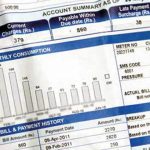ISLAMABAD: The Economic Coordination Committee (ECC) of the Cabinet which is scheduled to meet on Thursday(today) with Finance Adviser Dr Abdul Hafeez in the chair, will approve increase in tariff of K-Electric (KE) up to Rs 2.89 per unit to bring it at par with other Discos, well-informed sources told Business Recorder.
ECC of the Cabinet in its meeting held on March 4, 2020 constituted a committee under the chairmanship of Minister for Power, comprising Minister for Economic Affairs, Deputy Chairman Planning Comm-ission, Secretary Finance and Secretary Power Division to examine the subject issue in a holistic manner and submit a report thereon with viable recommendations to the ECC in its next meeting.
The committee held its meeting on March 16, 2002 and discussed different aspects of notification of KE’s determined tariffs of 11 quarters.
The committee decided following options for further consideration of the ECC: “The recommended quarterly adjustment to the tune of Rs 4.87 per unit being the differential between the schedule of tariff recommended by Nepra for April-June 2019 and schedule of tariff earlier recommended by Nepra and reflected in the KE notified tariff, be notified for each category of consumer, to the extent of bringing K-Electric consumers and tariff as par with what is currently in filed for consumer of Discos(increase in rate of Rs 1.09 to Rs 2.89/kWh for various categories of consumers). Any difference between the two rates be made available by way of subsidy which shall amount of Rs 26 billion only. To the extent of earlier quarters, KE be intimated to file its revised claim to Nepra for such quarterly adjustments after reflecting subsidy claims already processed pursuant to SRO No.571(1) 16 of June 26, 2016 which has not been accounted for the current determination and incremental rates for such adjustments be sought so that any such revenue requirement is recovered prospectively subject to any further subsidy ( if any) as may be available on a uniform basis,”
KE submitted its petition of monthly and quarterly adjustment on May 27 2019 for Power Purchase Price (PPP) indexation of O&M costs, and adjustment of T&D losses etc for eleven quarters from July 2016 to March 2019.
Subsequently, Nepra on December 31, 2019 determined the revenue requirement of KE for such quarters and accordingly recommended rate for each category of consumer as per the schedule of tariff eleven quarters beginning from October-December 2016 and ending on April-June 2019. It is evident that during this period various proceedings were pending with Nepra.
The QTA decision of eleven quarters by Nepra evidently updates the revenue requirement of KE up to March 2019 and accounts for shortfall or over recovery during each quarter from July 2016 to March 2019. It is further evident that for such period QTA decision of eleven quarters has taken the base values specified in KE notified tariff of May 22, 2019, wherein during the period SRO No. 571(1)2016 of June 27, 2016 remained in field and accordingly subsidy claims were also made by KE and were processed by the government. Accordingly, it is evident that for such period reconciliation of such claims is required.
Similarly, it is also evident that in view of the QTA decision of 11 quarters, the revenue requirement of KE has been actualized up to quarter ending March 2019, reflected in the latest schedule of tariff for April-June 2019 recommended by Nepra which had recommended Rs 4.87 per unit for each category.
Power Division has also pointed out that currently on account on the provisions of the Nepra Act and applicable policies as well as guidelines developed thereunder, uniform tariff for each category of consumer for Discos is applicable pursuant to various determinations of Nepra from time to time. KE notified tariff was also accordingly aligned. Subsequently, thereto, Nepra determined quarterly adjustments in June 2019, September and December 2019 for consumers of Discos. Consequently, currently a consolidated uniform rate within the range of Rs 1.09 to Rs 2.89 per unit is being charged for various consumers of Discos while also maintaining the socio-economic objectives for specified category of consumers.—MUSHTAQ GHUMMAN







